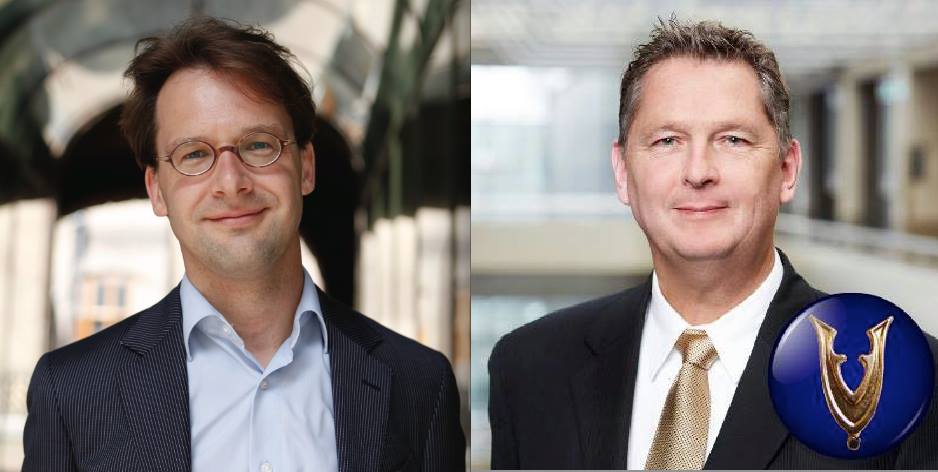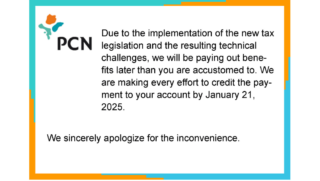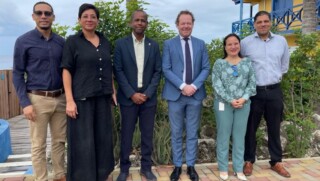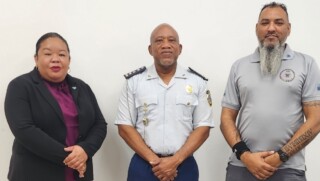Van Putten in letter: “Bosman and van Raak are feeling the pinch”

Letter to the editor
Dear editor,
Dutch Parliamentarians Andre Bosman and Ronald van Raak pride themselves on being very experienced and knowledgeable about Kingdom relations, the islands of the former Netherlands Antilles, and “het Statuut”. They always claim to have the best interests of the inhabitants of these islands at heart, and to represent a country (the Netherlands) that has an excellent track record when it comes to the (international) rule of law, good governance, and integrity.
For as long as they have been members of the Dutch Parliament, Bosman and van Raak (together with the successive Dutch Government officials charged with the portfolio of Kingdom Relations) have arrogantly ignored or rejected the consistent and constructive criticism leveled at (the dismal decolonization track record of) the Netherlands. Proposals, decisions, and (constructive) criticism by Government officials of the Dutch Caribbean islands are usually met with derogation and pointing fingers right back at the so-called “corrupt governments” on these islands.
However, since the verdict against the Netherlands in the Corrallo case, the international criticisms towards the Netherlands regarding the Venezuelan refugee issue, the two Court Cases initiated by the legitimate Government of Sint Eustatius thus far, and the strong but justified criticism by Aruba, Curacao, and Sint Maarten towards the Netherlands regarding its mishandling of the “Dispute arrangement” during the last IPKO, Bosman and van Raak have changed their tone.
Attempting to play victims who only have good intentions and “love” for the Dutch Caribbean islands and their populations, they seem to have “suddenly” realized that the dominance (including constant insults, arrogance, and a dismissive “take it or leave it”-attitude) which the Netherlands has been arrogantly and sternly exercising over the Dutch Caribbean governments since 1954, has a flip side to it.
That flip side is having to take moral-, legal-, and financial responsibility, and being exposed and held accountable for one’s actions in a court of (international) law, and the (international) court of public opinion.
Autonomy
Starting in 1954, the Netherlands has been having its cake and eating it too, hiding behind the “autonomy” of the Dutch Caribbean islands when convenient (i.e. in order to prevent negative international exposure and/or taking financial responsibility), and trampling it when expedient.
Now, Bosman and van Raak publicly acknowledge that Holland did not do a good job (with handling Kingdom Relations), that “het Statuut” does not function properly and needs to be adjusted, and that the process of decolonization of the Dutch Caribbean was not completed and should be finalized as soon as possible. They also stated that the people and Governments of the Dutch Caribbean islands should be consulted and allowed to make a choice regarding their constitutional position and the division of rights and obligations between them and the Netherlands.
Bosman, referring to the article 73 of the UN Charter, has already sent a draft proposal to change “het Statuut” to the Dutch Parliament. According to Mr. Bosman, his proposal is“completely in compliance with international law” and “codifies” constitutional rights obligations in Dutch law. In a recent radio interview, van Raak even went as far as to suggest a meeting between the Netherlands and the six islands to discuss all issues and come to a solution once and for all.
The question is why Bosman and van Raak, with all their knowledge and experience, are only now acknowledging what research by constitutional scholars like Steven Hillebrink and Fred Soons established years ago based on the UN Charter, UN resolutions, and transcripts of meetings of the UN General Assembly and the Dutch Council of Ministers meetings in the 1950’s.
Het statuut
Said research confirms that the Government of the Netherlands successfully ducked its responsibilities and obligations regarding the full decolonization of its overseas territories when it presented “het Statuut” to the UN General Assembly. Knowing very well that “het Statuut” did not constitute the full decolonization of the Netherlands Antilles, the Government still pushed it through.
Now that the Dutch Government is being internationally condemned, exposed, and criticized, Bosman and van Raak are feeling the pinch, and want to save face. It is exactly this condemnation, exposure, and criticism from within and outside of the Kingdom that the Government of Sint Eustatius has been warning the Government of the Netherlands against.
Had both gentlemen taken note of-, and/or acted on the numerous motions, proposals, and warning letters that the Government of Sint Eustatius sent to the Government of the Netherlands since 2015, they would not have to change their tone and presenting “solutions” now.
Commonwealth
In all fairness to my two former Parliamentarian colleagues, they did propose a Commonwealth structure for the Dutch Kingdom in 2013, which would essentially give all the six Dutch Caribbean islands their UN-mandated full measure of self-government.
The Commonwealth proposal was presented a while after a brief discussion I had as Commissioner with Mr. Bosman in The Hague in 2011. During that discussion, we both confirmed that Sint Eustatius has the right to be an autonomous and equal partner in the Kingdom of the Netherlands, and agreed that a plan of action would be made by Sint Eustatius and the Netherlands to outline how that objective would be achieved within five to ten years. Being a liberal politician, Bosman fully supported Sint Eustatius ambitions.
Then, in June of 2016, former member of the Dutch Senate, and recently appointed President of the Council of State Thom de Graaf, with the support of many parties in the Senate, presented a motion to “modernize” het Statuut (see The Daily Herald of June 22nd, 2016, pages 1 and 11). In his new position, de Graaf has the opportunity to overrule the misguided advices of his predecessor Donner, and play a crucial role making the Government of the Netherlands in compliance with international law.
Both Bosman and van Raak’s statements clearly justify the legal claims by the legitimate government of Sint Eustatius against the Government of the Netherlands based on the UN Charter. Yet, as representatives of a liberal and social party, they hypocritically voted for the decapitation of the democratically elected Government of Sint Eustatius, and support Knops’ statement that no elections will be held on Sint Eustatius in the next two months.
Stunts
With elections coming up in the Netherlands, I hope that Bosman and van Raak’s statements are not just publicity stunts. Bosman has alledgedly made legislative proposals for that reason in the past according to a fellow-VVD parliamentarian.
Despite my experiences with former Minister Plasterk, I want to give both gentlemen the benefit of the doubt. I want to assume that their statements about bringing “het Statuut” and the relationships within the Kingdom in line with the international obligations of the Netherlands, while respecting the choices of the populations of the six islands, are sincere.
If they are, I suggest that Bosman and van Raak immediately present a motion to start this process to the Dutch Parliament, and initiate preparations for consultations with the legitimate legislatures of the six islands, including that of Sint Eustatius. An act of good faith on the part of the Government of the Netherlands would be to end the unlawful occupation of Sint Eustatius by the appointed puppet Government, and allow the democratically elected, legitimate local Government to resume carrying out its task.
The IPKO scheduled for June of this year would be a good opportunity to have these consultations. Successfully completing these consultations will create a constitutional order within the Kingdom which fully complies with the obligations of the Netherlands as (former) colonizing power.
Sint Eustatius is ready, and the legitimate Government has the mandate of the people. As early as 2017, the Island Council of Sint Eustatius passed legislation paving the way to achieve a full measure of self-government, including a draft constitutional framework. The same Government also commissioned a feasibility study to establish the needs of the island as an autonomous entity in the Kingdom, and the amount of income that is currently being collected locally and transferred to the coffers of the Netherlands.
If Bosman has a good memory and good intentions, he will remember the discussion we had in 2011, and ensure that his Government cooperates with getting his intentions carried out to benefit of the entire Kingdom.
Clyde van Putten
Island Council Member and Leader of the Coalition Government of Sint Eustatius













